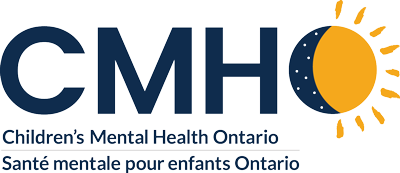The Ontario government is closing a specialized mental health treatment program for primarily Black, Indigenous and racialized kids just at the same time mental health issues are sharply rising in the province. The immediate impact of closing this program is an increased risk of suicides and hospitalization – at a time when pressure on hospitals must be reduced.
Kids in the youth justice system are at a high risk for serious mental illness. Twenty-five per cent have serious and complex mental illness that require intensive treatment. These are kids are suicidal, self-harming and sometimes, harming others. Many kids are in the youth justice system for actions that are because of their untreated mental illness. Because they are racialized, and/or marginalized, they end up in the youth justice system rather than in the mental health system. Because they are in custody, they can’t access the services they should have received in the first place. That’s not right and it’s not fair and it’s not aligned with Premier Ford’s 2018 election platform call that “it’s time to take mental health as seriously as any other form of health.”
Children’s Mental Health Ontario is calling on Premier Doug Ford and the Ontario government to keep this program open and transfer the program to the Ministry of Health. Don’t give up on these kids.
Why is Ontario denying healthcare to children and youth in its justice system?
I think by now we all agree that accessing mental health care should be equal to accessing physical health care – no matter where you are. Yet the Ministry of Children, Community and Social Services has closed the only specialized mental health treatment program (Kinark Child and Family Service’s program at Syl Apps Youth Centre) for youth in the justice system struggling with life and death issues of suicidality, dangerous aggression and severe emotional and psychological challenges.
To us, this suggests that this government doesn’t agree that access to mental health care should be equal to access to physical health care and it doesn’t suggest that this government is serious about keeping its promise to create a “comprehensive and connected mental health and addiction system.”
International research suggests that up to 90 per cent of young people involved in the justice system meet criteria for at least one mental health disorder and that the prevalence rate has been increasing. We also know that the youth who end up behind bars in Ontario are often the most vulnerable, with overrepresentation from racialized and marginalized communities.
Youth referred from other justice facilities across the province to Syl Apps had, on average, four mental health diagnoses, and half had attempted suicide. The Syl Apps program continuously operated at near capacity and frequently maintained a wait list. The majority of youth referred were Black, Indigenous and racialized. Now, the estimated one quarter of youth in custody or detention in Ontario’s youth justice system with serious mental illness and addictions issues, and the staff who care for them, will have nowhere to turn to access needed treatment. As mental health challenges rise due to the impact of COVID-19, rates of mental illness of those in youth justice are expected to become even worse.
Why is Ontario waiting and denying, in some cases, life-saving care, to kids just because they are in the youth justice system?
The UN Standard Minimum Rules for the Treatment of Prisoners (the ‘Mandela Rules’) states that prisoners should have access to the same standard of health care that is available in the community and that clinical decisions are to be made by health care professionals. In Canada, the Youth Criminal Justice Act requires provinces to ensure their youth justice facilities make provisions for youths’ special needs.
Two recent reports, the Criminal Justice and Policy Framework by CAMH and the Broken Record by John Howard Society of Ontario, point to the need for increased investment and support for equitable access and needs-based mental health care in the adult provincial system. Ontario’s youth justice system is even worse. The John Howard Society of Ontario recommends the Ministry of Health, through Ontario Health, should assume responsibility for the oversight and system integration of health care in corrections to ensure continuity and equality of care, building on the progress already underway in the corrections ministry. This should also be extended to youth justice.
To make matters worse, further trauma was caused by the way in which the closure of all 26 youth justice facilities was implemented. These kids were removed from being near their families and from the programs and treatment they were receiving with no notice and no plan to continue their care.
Basic rehabilitative supports are not an appropriate response to youth with significant mental illness, and behaviours including suicidality, physical aggression and self-harm. Previous inquests and enquiries tell us how the youth justice system responds in the absence of specialized mental health treatment for these youth – use of harmful segregation, physical restraints and moving youth from one facility to another when they become ‘hard to handle’. The case of Ashley Smith who was diagnosed with multiple mental illnesses and was in and out of youth justice and then later sent to multiple adult correction facilities where she died by suicide illustrates what happens when young people struggling with mental health issues in youth justice don’t get the right kind of treatment when they need it.
Without treatment and proper supports, it’s a matter of when, not if, one of the Ontario children who are not getting the mental health care they need will take their own life.
Kimberly Moran, chief executive officer, Children’s Mental Health Ontario
Paula Osmok, executive director, John Howard Society of Ontario
Camille Quenneville, chief executive officer, Canadian Mental Health Association, Ontario
Briefing Note:
Letters of Support:
Dr. Catherine Zahn, President and CEO, Centre for Addiction and Mental Health
The Child and Youth Mental Health Lead Agency Consortium
Dr. David Day, Child and Youth Clinical Psychologist and Professor, Ryerson University
Dr. Kwame McKenzie, CEO, Wellesley Institute
George Thomson, former Deputy Minster and Family Court Judge
John Rabeau, Deputy Minister of Corrections (retired)
Karim Mamdani, President and CEO, Ontario Shores Centre for Mental Health Sciences
Sara Dias, Co-chair, Provincial Human Services and Justice Coordinating Committee


0 Comments